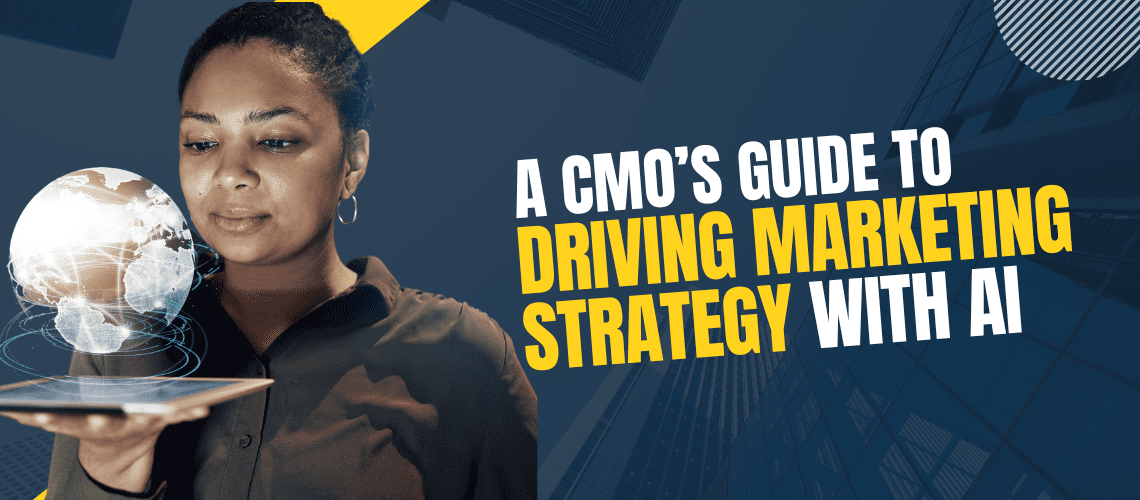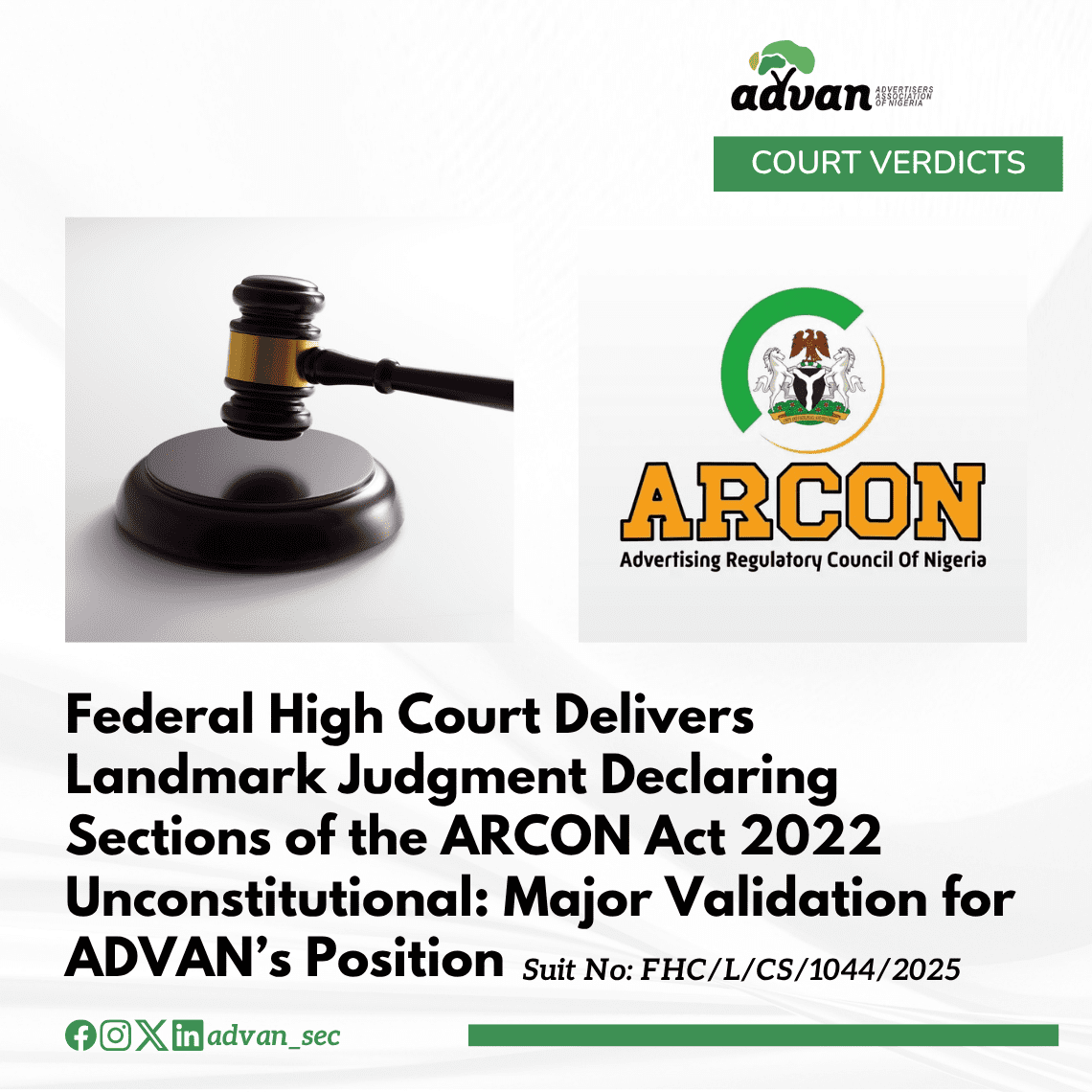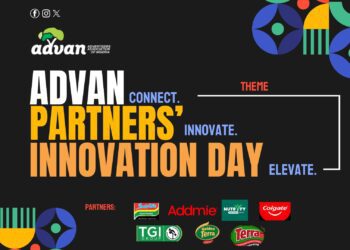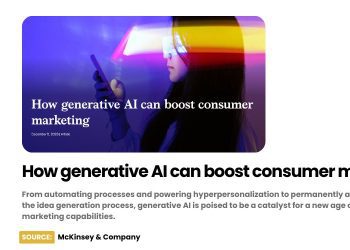As a Chief Marketing Officer (CMO), staying ahead of the curve is crucial for success. In today’s rapidly evolving digital landscape, harnessing the potential of Artificial Intelligence (AI) can transform your marketing strategies, enhance customer experiences, and drive business growth. By leveraging AI’s capabilities intelligently, CMOs can make data-driven decisions, predict customer behaviour, create personalised experiences, optimise marketing campaigns, map the customer journey, analyse sentiments and social listening, generate content, and integrate marketing automation platforms.
Here are eight (8) key ways by which a CMO can explore the use of AI to drive marketing success while delivering exceptional customer experiences:
-
Data-Driven Decision Making
Data has become the soul of every business and, by extension, marketing effort. Without data, a company can be said to be blind and deaf in the middle of a freeway. Over the years, many CMOs have been inundated with data overload, and the ability to analyse key data for decision-making has become even more critical.
By leveraging the power of AI algorithms, CMOs can gain deep insights into customer behaviour, preferences, and trends, filtering through vast amounts of data and enabling them to make data-driven decisions. For example, AI-powered recommendation engines can personalise product recommendations based on individual user preferences, leading to higher customer engagement and satisfaction. With AI, CMOs can unlock the full potential of their customer data and stay ahead of the competition.
-
Predictive Analytics
Every CMO wants to be able to predict the future and allocate their marketing budget to where they will get the most return on marketing investment.
Using AI models, CMOs can leverage the power to predict future outcomes accurately based on historical data. CMOs must utilise predictive analytics to anticipate customer needs, optimise marketing campaigns, and allocate resources efficiently. For instance, predicting churn rates and proactively targeting at-risk customers with retention strategies can significantly improve customer satisfaction and retention rates.
Read the article: CMOs need to change internal culture to deliver data ethics
-
Personalisation at Scale
Personalisation is the future of customer experience. Providing a personalised experience to many people is no longer a challenge. With the right tools and technology, a marketing team can create customised experiences that leave a lasting impression on your customers.
AI can empower the marketing team to craft personalised experiences for every customer segment. Leveraging dynamic content generation, chatbots, and recommendation systems can significantly enhance engagement levels. For instance, targeted email campaigns can be sent out utilising user behaviour and preferences data to achieve higher conversion rates. Sentiment and digital mentions can be analysed to create highly engaging content in the digital space.
Read the article: Marketing Tips: Personalize your marketing messages
-
Automated Campaign Optimisation
CMOs can drive digital optimisation of brand campaigns for high impact. With campaign optimisation using AI tools, a CMO can streamline the marketing process and ensure all campaigns are optimised for success, reducing tedious tasks or guesswork. Automating campaigns can make it easier to analyse data, identify patterns, and make real-time adjustments to ensure that campaigns always perform at their best. It will also help save time, money, and resources while achieving better.
Over the last few years, AI-powered tools have revolutionised marketing campaigns by optimising them in real time. With automated A/B testing, bid management, and content optimisation, campaign performance can be significantly improved. For instance, adjusting ad spend based on real-time performance metrics can help you maximise your ROI. Capturing customer engagement data in real-time during activation can help marketers tailor the campaign to a better-suited audience.
-
Customer Journey Mapping
As digital adoption continues to grow, so do the customers seeking a better experience with brands they have an affinity with. Customer journey mapping allows brands to visualise and analyse the end-to-end customer experience with their products, identifying key touchpoints or interactions with the brand, from initial awareness to purchase and beyond.
Using AI, a marketing team can map the customer journey across touchpoints. With the help of AI, CMOs can quickly identify pain points, optimise touchpoints, and enhance overall customer satisfaction. For instance, by analysing website interactions, social media engagement, and email responses, CMOs can comprehensively understand the customer journey and take necessary actions to improve it.
-
Sentiment Analysis and Social Listening
Digital communications have become a more significant part of consumers’ lives. Conversations are happening about your brand, your market, your competition, your industry, etc.; how a CMO gather and analyse the online conversations and discussions to gain insights into people’s opinions, feelings and attitudes towards a particular topic, brand, product or service that affects their brand is critical.
Understanding your target customers, identifying trends, and making informed decisions based on the feedback received from social media platforms, blogs, forums, and other online channels have become essential parts of marketing attributes.
Analysing this conversation with AI-powered sentiment analysis tools is a must-have for CMOs to stay ahead of the game and drive the share of digital voice. By monitoring social media conversations and brand mentions, these tools enable CMOs to gauge public sentiment and respond proactively. For instance, identifying negative sentiment around a product launch and addressing it promptly could make all the difference to the campaign’s success.
-
Content Creation and Optimisation
The introduction of ChatGPT in 2022 has made it easier for many brand teams to create content and optimise content that has yet to be doing well.
Using AI to generate content has become a game-changer, revolutionising content creation processes. With cutting-edge natural language processing (NLP) tools, writing high-quality and compelling copy is now easier. With NLP, marketers can create personalised product descriptions, social media posts, ad copy or blog posts that resonate with the target audience, driving engagement and boosting conversions. For the brand team looking to streamline their content creation process and achieve more significant results, embracing AI-generated content would make substantial progress.
-
Marketing Automation Integration
Marketing Automation Integration is a crucial component of any successful marketing strategy. Ignoring its importance can lead to missed opportunities and decreased efficiency. CMOS must prioritise Marketing Automation Integration to optimise their marketing efforts and achieve their business goals. Integrating AI with existing marketing automation platforms enhances efficiency. Workflow automation, lead scoring and lead nurturing benefit from AI. For example, automating lead follow-ups based on user behaviour triggers is a highly effective approach to ensure timely and targeted communication with potential customers.
In conclusion, as a CMO, embracing AI-driven marketing strategies is no longer optional—it’s essential for staying competitive in today’s dynamic business environment. By leveraging AI’s capabilities intelligently, CMOs can drive marketing success while delivering exceptional customer experiences.









